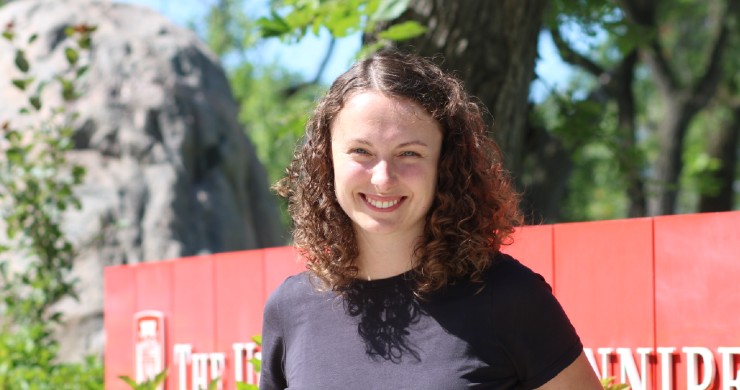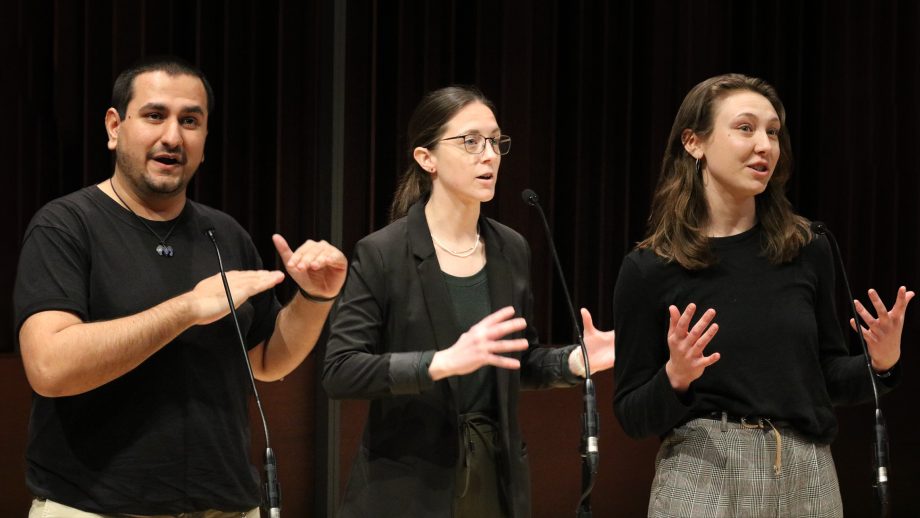Burning wood for heat and cooking has been around for millenniums. Bioenergy is essentially burning biomass* for energy. It is increasingly being seen as a renewable energy source that can meet today’s energy needs. This energy source addresses key issues such as reducing greenhouse gases, localizing energy systems, and strengthening local economies.
Manitoba has a large availability of biomass, which means there is potential to grow the bioeconomy in a sustainable manner.
Information about Manitoba’s bioeconomy and opportunities surrounding bioenergy is not readily available. However, a University of Winnipeg research team is working to change that.
Members of UWinnipeg’s Environment and Society Research Group** and experts in the bioenergy sector have synthesized information about the current state of the bioeconomy in the province. They have created an easy-to-navigate and interactive learning tool that anyone is free to use to learn more about Manitoba’s bioeconomy.
“Making this information widely available to as many people as possible is an important part of strengthening Manitoba’s bioeconomy,” said Bryanne Lamoureux, a Senior Research Assistant and Department of Environmental Studies student, who worked on this project.
The online module serves as a learning tool that provides an overview of the bioeconomy in Canada and Manitoba, and has activities and readings throughout for further learning. The second half of the module also features specific bioenergy projects in Manitoba, including the biomass burner at UWinnipeg.
This important tool is available at Experiential Learning: Manitoba’s Bioeconomy.
Lamoureux notes that the module will increase awareness of the opportunities that exist, and let students know that the bioeconomy holds potential meaningful career paths that are available for them to pursue.
“As interest in bioenergy continues to swell, the majority of research focuses on the technical and engineering aspects of bioenergy systems, when in fact there are crucial gaps to be addressed regarding socio-economic barriers and public perceptions,” said Dr. Ryan Bullock, Department of Environmental Studies and Sciences. “Our recent paper in Energy Research and Social Science shows that. So our team has integrated relevant information and perspectives to support education and policy development needed to expand Manitoba’s bioenergy sector.”
Lamoureux just completed her fifth and final year at UWinnipeg, graduating with a Bachelor of Arts (Honours) in Environmental Studies and a three-year Bachelor of Arts in Sociology. She plans to complete her Master’s degree at Dalhousie University.
“I’ve really enjoyed these last five years at UWinnipeg,” said Lamoureux. “Many of the professors I’ve had are very passionate about their work, and what I’ve learned throughout my education has made me grow enormously as a person and as a member of this society. The opportunities I’ve had access to in this research group and the encouragement from the wonderful people I worked with gave me the confidence to continue my education and pursue my Master’s.”
This project would not have been possible without funding from The University of Winnipeg’s Experiential Learning Fund, the Social Sciences Humanities and Research Council, Canada’s Research Chair Program, and Mitacs.
*Biomass is “any material, excluding fossil fuels, which is or was a living organism that can be used as a fuel directly or after a conversion process.”
**Dr. Ryan Bullock, Dr. Jonathan Luedee, Kaya Lange (Mitacs student), and Bryanne Lamoureux. Experts in the bioenergy sector also significantly contributed to this project, including Kyle Macdonald, UWinnipeg Executive Director of Facilities Management.





